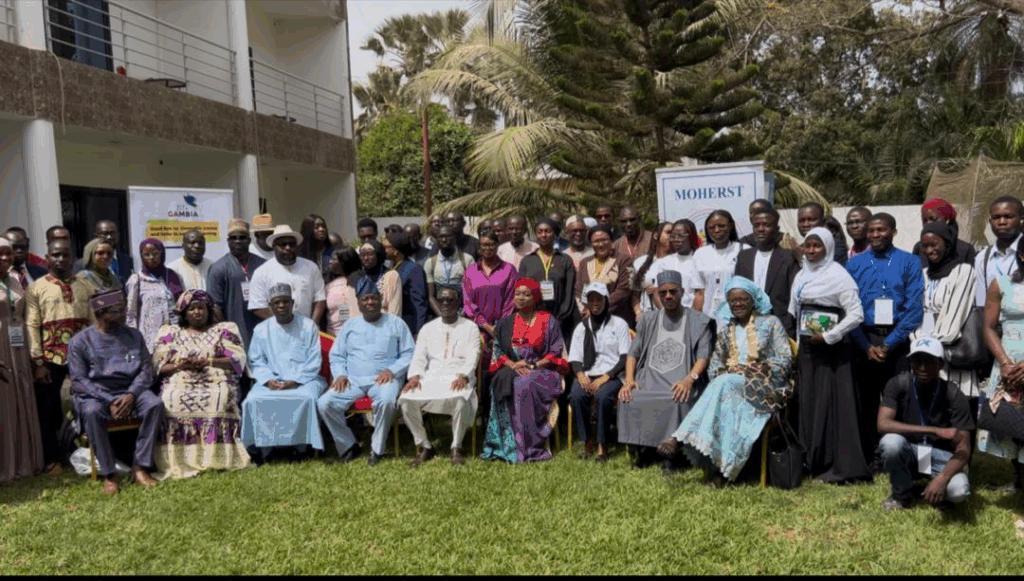
Africa-Press – Gambia. In a significant stride toward modernizing the country’s higher education system, the Ministry of Higher Education, Research, Science, and Technology (MoHERST) on Thursday unveiled the TITA mobile application—an AI-powered digital platform aimed at transforming the academic experience for tertiary institutions in The Gambia.
Developed by Nigeria-based IT firm TITA Universal Services Ltd., the app offers a comprehensive suite of features designed to streamline communication, scheduling, and administrative processes across universities and colleges. The platform integrates artificial intelligence to automatically generate academic timetables and provides students with tools to register for courses, pay tuition, track their academic performance, and submit assignments—all through their mobile devices.
“The introduction of the TITA Mobile App is timely and well aligned with the Ministry’s broader vision of improving quality, accessibility and efficiency across all our tertiary and higher education institutions,” said Jainaba Jagne, Permanent Secretary at MoHERST. “This innovation is the result of a strategic vision, thoughtful diplomacy, and productive collaboration.”
At the launch event in Banjul, Higher Education Minister Professor Pierre Gomez urged students, faculty, and administrators to embrace the application as a tool to enhance academic efficiency and bridge longstanding gaps in institutional communication.
“This initiative is a testament to our commitment to empowering higher education institutions by promoting excellence and reducing financial and logistical barriers to modernization,” Professor Gomez said. “The TITA App is one of the innovative solutions conceived during His Excellency President Adama Barrow’s visit to Nigeria, where the idea of bringing this transformative technology to The Gambia was born.”
The application’s tripartite ecosystem consists of:
TITA App for Students: A personalized platform delivering real-time electronic timetables, alerts for class changes, and access to academic records, keeping students organized and informed.
Lecti for Lecturers: A dynamic interface allowing faculty to adjust schedules, communicate changes instantly, and manage teaching responsibilities with greater autonomy.
TITA Admin Panel for Management: Featuring a powerful automatic timetable generator that creates institution-wide schedules in seconds and synchronizes them across all user platforms.
Aisha Aminu Mohammed, the lead developer of the TITA App, emphasized the application’s user-centric design, noting that it was created by a diverse team of young innovators—mostly women—dedicated to solving real-world problems in education through technology.
“TITA is not a one-size-fits-all tool,” she explained. “It is a purpose-built ecosystem that empowers students, lecturers, and administrators alike. This is about eliminating inefficiencies and unlocking new potential in our educational institutions.”
Beyond academic scheduling, the app also opens up new revenue streams for institutions through digital advertising and lays the groundwork for entrepreneurial engagement within campuses.
“This is more than just a technological upgrade,” said Ms. Jagne. “It’s an enabler—making access easier for students, time management simpler for lecturers, and operations smarter for administrators.”
As the Gambia continues to invest in digital innovation to elevate its higher education sector, the launch of the TITA App marks a significant milestone in that journey—one that seeks to move institutions away from outdated manual systems toward a future defined by connectivity, efficiency, and global competitiveness.
For More News And Analysis About Gambia Follow Africa-Press





